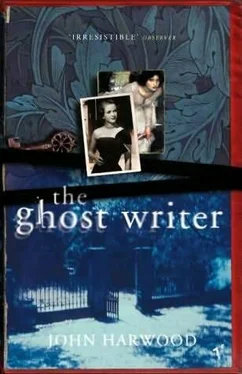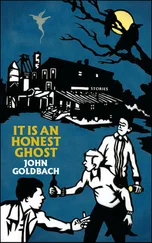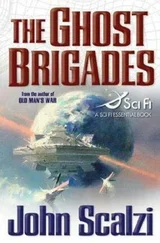Three minutes later I was back in the library with Viola's letter in my hand, staring at a picture of the first X-ray photograph ever taken: the skeleton of a hand shrouded in ghostly flesh, the black band of a wedding ring stark against the fingerbone. The hand of Anna Rontgen, wife of Wilhelm Conrad von Rontgen, discoverer of Rontgen rays, as they were then called, taken in December 1895. The machine upstairs was called a fluoroscope; the vacuum tube that generated the rays had been named after its inventor, Sir William Crookes. Like several other distinguished Victorian scientists, Crookes had divided his energies between science and'séances, especially the'séances conducted by an attractive young medium named Florence Cook.
In the spring of 1896, thousands of people had queued at exhibitions throughout the United States and Europe to place their hands, even their heads, in primitive X-ray machines and see the skull beneath the skin. Thousands of fluoroscopes had been sold in that first year: to physicians, engineers, prospectors, amateur scientists and cranks of all persuasions. One of them must have been Alfred Hatherley.
I shall never forget that day at the Crystal Palace: I think of it whenever I read 'The Relic'. It destroyed the illusion of immortality, the feeling of infinite time that one enjoys when young. Alfred was obsessed-he had to have one. But it seemed to me pure evil, a thing of darkness.
Viola had been right: the machines were appallingly dangerous. A Viennese doctor subjected his first patient, a five-year-old girl, to 32 hours of radiation in an effort to remove a mole from her back. All her hair fell out; her back burned and blistered horribly. Thomas Edison's assistant Clarence Dally was the first to die, in hideous agony, at the age of thirty-nine, with both arms amputated in a vain attempt to stop the cancer from spreading. An early radiologist described the pain of X-ray burns as 'worse than the torments of hell'.
And this was what my mother had knowingly inflicted on Anne. There was no question of concealment any more. I would have to tell-I wanted to tell-not Miss Hamish, the truth was too appalling-but the police. Fifty years too late, but they could close the file.
As I moved around the table to replace the book on the shelf, the planchette caught my eye. I had meant to scoop up the sheet of butcher's paper and crumple it without looking: that way I would never be certain that I hadn't dreamed the messages. But the idea now seemed childish; I knew perfectly well that 'Miss Jessel' would still be there.
As indeed it was, but the planchette had moved on again. From the tail of the final T, a faint pencil line meandered back towards the left-hand edge of the sheet, then downward in a sudden decisive swoop into thin, spiderish script:
***
In the smoky, flaring candlelight, the tunnel was alive with shadows thrown by the branched candelabra in barred crisscrossing patterns over the timbers of the door, multiplying my own gestures in monstrous dumb show. I felt the heat of the flames as I set down the candelabra and turned the beam of the torch in my other hand on to the black padlock.
Here in the tunnel it would be just as dark at midday. And I would have spent another sixteen hours imagining what I might find on the other side of this door. With a certain fatalistic dread, I saw that the keyhole in the padlock had a short central pin, just right for the barrel of the one key I had not yet identified. The lock scraped and grated; the body of the padlock dropped away from the hasp. I lifted the latch and opened the door a fraction.
Nothing came out. The torch beam wavered down a narrow, precipitous flight of steps on to another flagged floor, dark with moisture. There was a handrail attached to the wall on the left of the stairs, but no banister on thè other side, just a sheer drop to the stones below. A raw, urinous odour drifted up to me. Racks and shelves, mostly empty so far as I could see, extended along the walls. Patches of lichen flickered in the torch beam. The cellar was long and narrow. Beneath the end wall, I could just make out a mound of something that looked like earth.
The more I played the torch over that mound, the less I liked it. The candles gave far more light, but the flames dazzled me no matter where I held it.
I had been kneeling with the open door propped against my shoulder. When I moved away, it swung closed of its own accord: the bar slid almost to the top of the catch. I tried it again, letting the door go from hard against the side wall. This time the bar slid up and over and dropped, unnervingly, into place. One of those massive Victorian irons in the laundry would wedge it securely open. But then I noticed a small metal eye in the top of the door above the latch. At the corresponding point on the wall, in the vertical gap between two blocks of stone, a hook had been mounted so that it hung inside the recess. I dropped it into the eye and shook the door hard to make certain it was secure.
As I did so I noticed that the inside of the door was scarred by numerous vertical gouges, especially along the joints where the planks met, as if some savage animal had tried to claw its way out of the cellar. I remembered the deep scratches in the floor of the bedroom cupboard.
DOWN HERE THE AIR WAS COLDER STILL: CHILL AND DAMP and stale. I had the torch in my right hand, flames trailing from the candelabra in my left. A cobweb flared along the shelves-mostly anonymous tins and bottles, labels long gone-as I approached the dark mound. Not earth: a black tarpaulin shrouding an irregular form about five feet long. I stretched out a reluctant foot and twitched the covering aside.
Something scuttled from the heap. I recoiled, shuddering, and bumped against the shelves. The whole end section came crashing down, shattering glass and sending cans rolling and clattering into the dark. By a small miracle I kept hold of both the candelabra and the torch. The flames guttered wildly but did not go out, and as the light steadied I saw amidst the debris a small yellow package tightly tied with string.
As I bent to pick it up I heard another, softer sound from above. The creak of hinges. I had not even reached the foot of the steps before the door swung shut. The click of the latch dropping into place was audible even through the heavy planks.
BY THE END OF THE THIRD HOUR I HAD EXHAUSTED EVERY avenue of escape. The timber was like iron; the door closed flush onto a broad lip of stone, so that the edges were inaccessible from inside. I might have forced a blade between the planks, or prised them apart with a crowbar or even a heavy screwdriver, but there wasn't a single implement in the cellar. The entire construction of the shelving was wooden, much of it rotten, none of it strong enough to make an impression on the door. There were no tools, no knives; nothing bigger than a rusty nail. I tried scraping at the timber with broken glass, and cut my hand badly without making any impression. I tried the keys themselves: most were the wrong shape for gouging, and those that were thin enough had bent and then broken. I thought of prising up a flagstone to use as a battering-ram, but I had nothing to prise with; they were all immovable. I had even overcome my dread of what might be hidden beneath the black tarpaulin, and found only a pile of rotting sandbags-left over from the Blitz, perhaps. I tried hitting the door with one and it split on the first blow, showering me with damp sand.
Now, as I sat on the top step with my back against the immovable door, the torch was noticeably dimmer, though I had used it as sparingly as possible, and the first of my four candles-I had put out the other three as soon as the first wave of blind panic subsided-was almost gone. On one of the intact shelves I had found a pool of long-congealed candle wax, with an empty matchbox beside it. The corroded tins had all held paint or household cleaners. I had no food, no water, no jacket: only a filthy, sweat-soaked shirt and trousers, a box of matches, almost full, a fading torch, and three more candles.
Читать дальше












